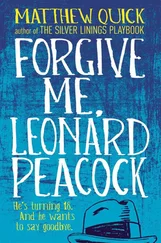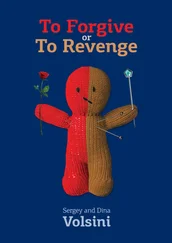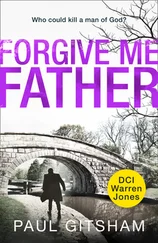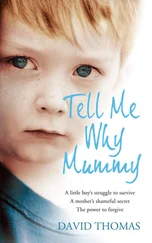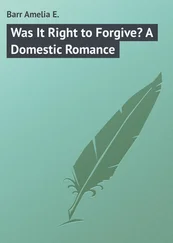“I get the picture,” said Nadine.
“Anyhoo,” said Gwen, “I’m real glad we had this little chat.”
When she was alone, Nadine stared at the article, which she had written almost ten years before.
The summer she flew from JFK to Cape Town International Airport, Nadine was twenty-five, her hair in a long braid down her back. On her face, Nadine wore only sunscreen and ChapStick, and she was often mistaken for a student. But the lines in her forehead and the coldness in her eyes, her angry cynicism, betrayed her experience. By twenty-five, Nadine had been to Bhopal, India, where she had seen and reported on hundreds of dead bodies, victims of a slow, lethal leak in a Liberty Union methyl-isocyanate plant. She had comforted dying children in an emergency feeding center on the edge of Ethiopia’s Danakil Desert, filing detailed accounts for the Boston Tribune. Her articles about the torture wrought in Haiti by the Tonton Macoutes won her a five-hundred-dollar award, which she put toward credit card bills. She didn’t shy away from the gruesome details. In fact, as her Tribune editor, Eugenia, said, Nadine was “hot for gore.”
Nadine was ready to stare the worst in the face. But a steady paycheck still eluded her. It was part of the job: stringers paid their own way, hoping to sell enough stories to cover plane tickets, hotels (or crummy apartments), meals. Sometimes Nadine was forced to share a room with a more established reporter. Eugenia often bought Nadine’s stories, but Nadine dreamed of a steady position. Or the ultimate prize: paid expenses.
Eugenia called Nadine first when something unimaginable happened in a far corner of the world. “I don’t know how she handles it,” Nadine once overheard Eugenia telling another editor, “but she handles it. For now, anyway.” Eugenia had a foul mouth and a nose for ratings. “Nadine, babe,” she’d say, “I’m FedExing tickets to Haiti. Can you smell the blood?”
In Port-au-Prince, Nadine met Padget Thompson, the bureau chief for The New York Times. One night, as they drank whiskey at the Hotel Oloffson, Padget fixed her with a stare. “May I give you some advice, my dear?” he said.
“Of course,” said Nadine. She sipped her drink quickly, trying to pry her mind away from the boy she had seen that morning, killed in a voodoo ceremony.
“Your work is shocking. It’s fresh and energetic.”
“Thanks,” mumbled Nadine.
“But there will come a day when shocking people will grow tiresome. You’ll want to teach, to change things.”
“I’m hardly a tabloid reporter.”
“Oh?” said Padget. He ran a hand over thinning hair. “I don’t have a daughter,” he said. “Indulge me my fatherly tendencies.”
Nadine sighed, but revolved her hand to say go on.
“What you do is good. You rush in, detail the facts. You’re courageous. But to get better, to become a great reporter, you’re going to have to learn what it is you’re doing. You need to take it apart and put it back together with thought. You need to go to graduate school, and then stay in one place for a while. Your work needs perspective. Yes, horrible things are happening, and thank you for telling us. But why, Nadine? And what can we do about it?”
Nadine ordered another drink. She was quiet.
“For example,” said Padget. “When Duvalier flees the country, which he will, what’s going to happen? He’s a vicious asshole, yes. But who’s going to replace him? And what will become of Haiti then?”
Nadine looked up. “Whatever comes,” she said, “it will be better than Baby Doc.”
“Are you sure?” said Padget. “In ‘57, Baby Doc was the great hope.”
Nadine sipped her drink. “I never…,” she said. “I guess I hadn’t thought.”
“Thanks for listening,” said Padget. “Just a few words from an old man.”
“You’re not old,” said Nadine.
“Got to pass the torch sometime.”
In the morning, Nadine called the NYU School of Journalism, Padget’s alma mater.
Nadine studied writing, photography, and history at NYU. One of her professors was South African, and she urged Nadine to head to Johannesburg or Cape Town for the summer. “I’d give my arm to go back,” said Renata. “The Young Lions are changing the world. They’re braver–and dumber–than we were.”
Nelson Mandela’s struggle for a nonviolent takeover had come to nothing, Renata explained. Mandela was in prison, and many of his ardent supporters–including Renata, a white journalist who had questioned the mysterious deaths of jailed activists–were dead, missing, or exiled. Black youth, born and bred in the townships that surrounded South Africa’s cities, stripped of rights, material pleasures, and education, had grown up angry. “Their parents were too scared to fight. They had jobs, and they didn’t want to lose them,” said Renata. “But these kids? They’ve got nothing. They don’t have one thing to lose.”
They called themselves the Young Lions, and they were coming of age, embracing violence as a way to take back their county, which had been ruled by whites since 1948. South Africa was going to ignite, Renata said, “like a fucking bomb.
“For God’s sake, they just beat that American boy to death for being in the wrong place at the wrong time.”
“I don’t get it,” said Nadine. “I mean, why did they kill him? How could that help anything?”
“It’s the mind-set,” said Renata. “These kids feel like violence is the only way. Maybe they’re right. If they kill people, blow things up, the government will have to take notice. Everyone will stop ignoring apartheid. Jason Irving’s face was on the front page of every paper in the world.”
“But Jason Irving was American. He was teaching in the townships–”
“This isn’t subtle, Nadine. It’s not about thinking actions through. If you see a white person, kill them. If you announce a strike–nobody go to work for the white man–and some people take the train to work, blow up the train. It’s cut-and-dried, desperate. The kids who killed Jason, they had just left a rally. They’d been told to kill. One settler equals one bullet. A simple equation, in a country where there’s no room for nuance.”
“It’s insanity,” said Nadine.
“It’s news” said Renata.
Nadine went to Boston to meet with Eugenia, who was skeptical. “First you ditch me for graduate school,” she said disdainfully, lighting a cigarette in her cluttered office, “and now South Africa? I don’t know, babe. What about Sudan? Starving orphans, Nadine. Hundreds of ‘em. We’ve got Bill there, but you’re better at the misery and death stuff. Hell, Nadine, orphans are your specialty.”
“But I know I could do great work in South Africa,” said Nadine. “My professor, Renata Jorgensen, she fled the country with her notes on Steve Biko–”
“Spare me,” said Eugenia. She touched her springy red curls and then stubbed out her cigarette. “I’ll advance you the plane ticket and one month’s rent. Find something cheap.”
“Thanks, Eugenia. I promise, you’ll be glad.”
“Yeah, yeah,” said Eugenia. “Let’s go pig out on pizza.”
From the moment she stepped outside the airport, Nadine was entranced by Cape Town. She loved the way the city wrapped itself around majestic Table Mountain, embracing the peak on three sides and spilling out to Table Bay and the Atlantic Ocean. Sundrenched vineyards climbed the eastern slopes of the mountain, their picturesque wineries wreathed in oak and pine trees.
Nadine took a rare day to herself, heading south of the city, to the Cape of Good Hope, and hiking out to its craggy point. High above two oceans, she breathed deeply. In the nature reserve, she saw a zebra and ostriches. Small but fierce baboons grabbed at the remains of her picnic lunch.
Читать дальше


